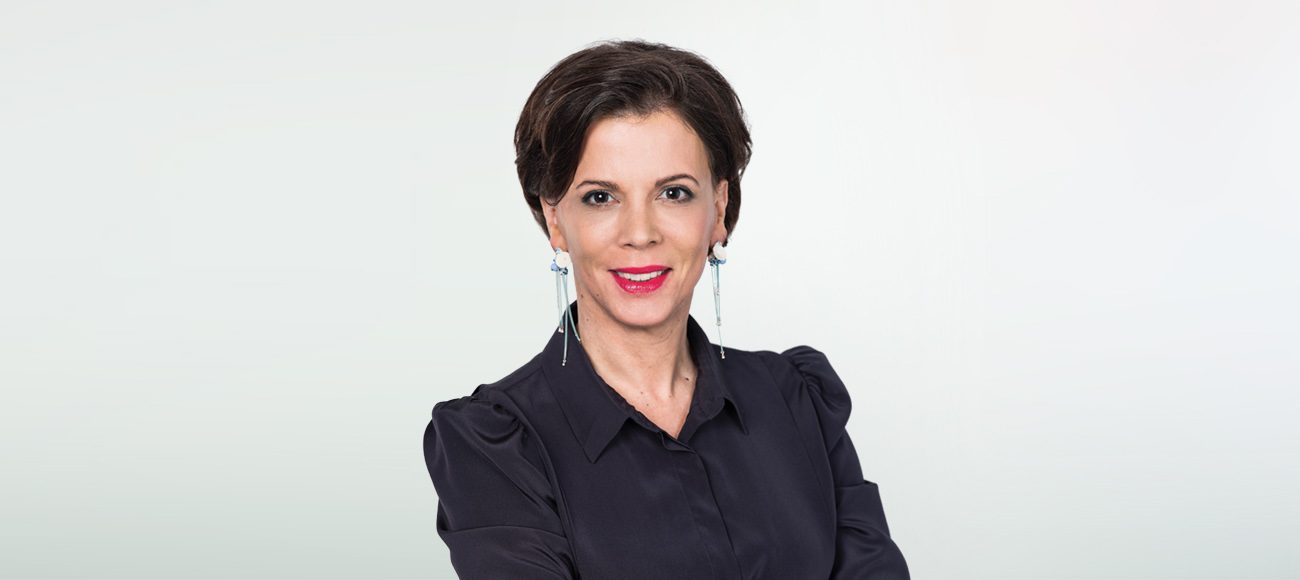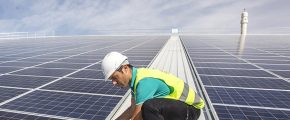“L’Oréal has embarked on a fundamental transformation towards a more sustainable model”
Alexandra Palt - Executive Vice-President ‐ Chief Corporate Sustainability Officer and L'Oréal Foundation

In 2013, L’Oréal launched its sustainable development programme “Sharing Beauty With All” , with a series of commitments to achieve by the end of 2020, covering all the Group’s impacts throughout the value chain, from product design to sourcing ingredients, the production process and distribution.
Thanks to the programme and the commitment of all the teams, who have completely reinvented the ways they work, the Group has embarked on a fundamental transformation towards a more sustainable model.
One example of the rapid progress we have made is the transition to a low-carbon model: between 2005 and 2019, we reduced our CO2 emissions in our plants and distribution centres by -78% in absolute terms, even though our production volume increased by +37% over the same period. In 2017, L’Oréal made new commitments in relation to combating climate change, which were approved by Science Based Targets , an initiative that encourages businesses to adopt a voluntary approach towards transitioning to a low-carbon economy and to embark on a trajectory that will allow us to keep global warming below the +1.5°C threshold, stipulated by scientific experts. L’Oréal has therefore committed to reducing its total greenhouse gas emissions (scopes 1, 2 and 3, i.e. emissions that are produced directly by the Group as well as those generated indirectly, for example, by the activities of its suppliers or the use of its products by consumers) by 25% in absolute terms by 2030, compared with 2016. In addition, L’Oréal has committed to achieving carbon neutrality in all its laboratories, plants, distribution centres and administrative offices by 2025.
L’Oréal’s ambition in terms of sustainable development is also about protecting the planet’s natural resources. It has implemented multiple initiatives in this area, including improving the biodegradability of its formulations, sustainable sourcing of raw materials and a “zero deforestation” commitment, eco-design of packaging, water reuse and recycling in closed loop in plants , waste reduction and more. All these measures contribute to a responsible, sustainable business model.
L’Oréal has acted in accordance with the 10 Principles of the United Nations Global Compact for the last 20 years and has contributed to the UN’s Sustainable Development Goals since 2015. Engaging with NGOs and the partnerships the Group has forged with innovative startups and our suppliers, along with joint action with other large businesses, have helped us join forces and play a key role in transforming the sector.
All of these efforts have been recognised. In 2019, for the fourth consecutive year, L’Oréal achieved three “A” ratings, i.e. the top score, in each of the three rankings produced by the CDP in three key areas: combating climate change, sustainable management of water and protecting forests. L’Oréal is the only business in the world to have been awarded three “A” scores by the CDP four years in a row.
Although significant progress has been made, we must reassert our tireless determination to contribute to the collective effort as a matter of urgency. 2020 marks the end of the first series of “Sharing Beauty With All” targets and will also be a turning point in terms of sustainable development as we will unveil our new programme and new commitments for 2030 in the spring.
As the pace of climate change increases, it is important to listen to scientific experts, listen to the planet and manage our activities within the constraints imposed by its finite resources. It is also a moral imperative: we all have an obligation to act and step outside of our comfort zone.


